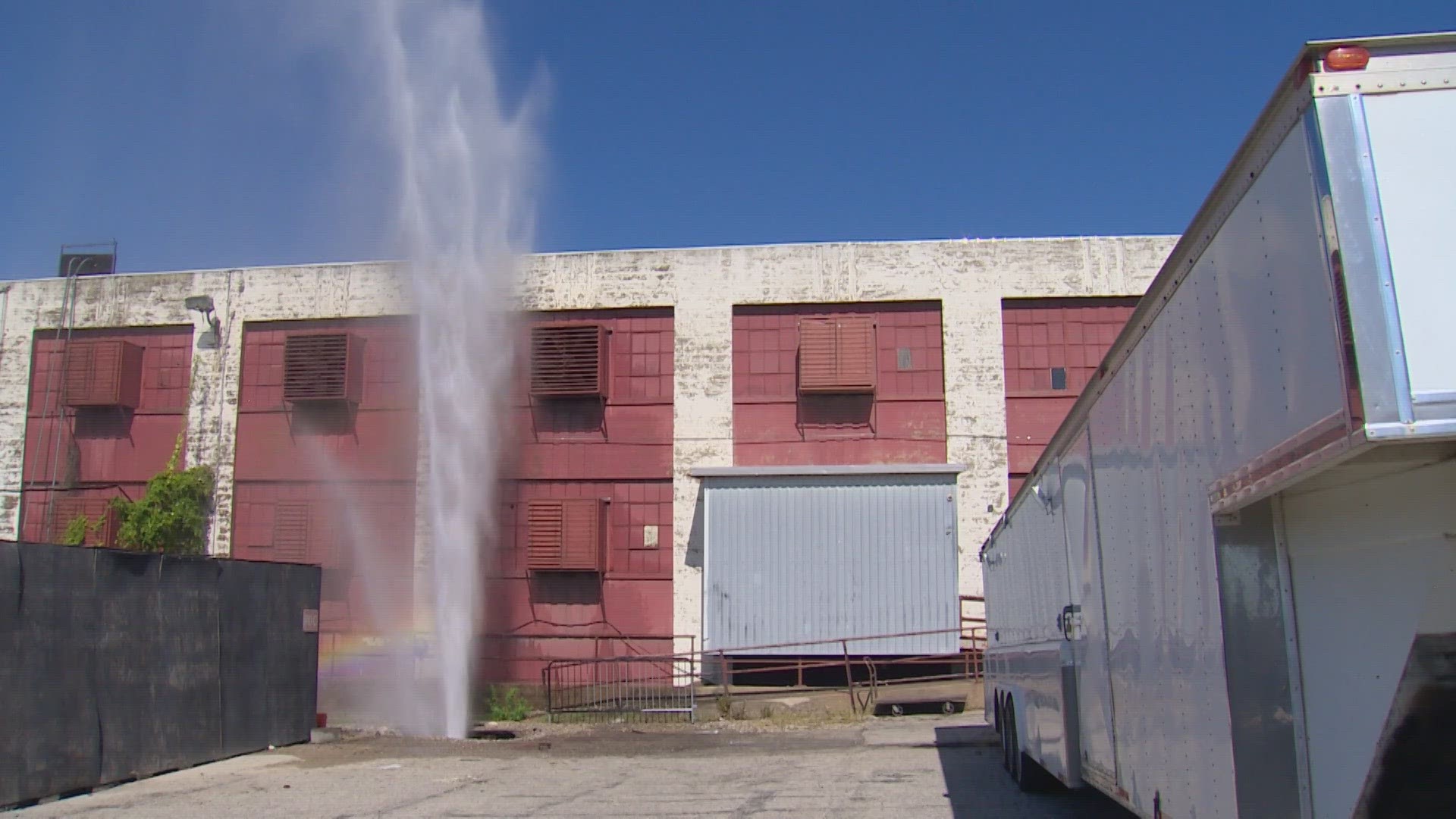FORT WORTH, Texas — When it gets hot and dry enough, nature makes its own splash pads. They’re called water main breaks.
Fort Worth is dealing with more than four water main breaks a day during the current summer heat wave, and other North Texas cities are dealing with similar issues.
“We haven’t had any rain, so the ground is dry, and it continues to dry out,” Mary Gugliuzza, spokesperson for Fort Worth Water, said. “As it dries out, it contracts and shifts and that can cause main breaks.”
The heat is also driving a surge in demand. Last Sunday, Fort Worth set a record using 406 million gallons in one day, beating the previous record by 18 million gallons.
The city of Azle is also dealing with main breaks. It was under a boil notice for roughly two days after a large main break forced them to shut down water pumps Friday.
Fort Worth also has 800 miles of cast iron pipes, which are prone to breaking, in its system. It’s slowly replacing them mostly with PVC pipes which are more flexible.
“There’s a limit to really how much you can do from both a financial standpoint and a contractor standpoint," Gugliuzza said.
Fort Worth has dealt with 370 main breaks so far in 2023, an average of around two per day. But in the last 30 days, the city has had 130 breaks, an average of more than four per day.
Repairs can also take time with crews stretched thin and rotating due to heat.
“It is very weather-driven,” Gugliuzza said. “It does take time. Like I said, there’s a process we got to go through to make sure that we’re doing it right.”
They’re currently using sewer crews to help with breaks, but, if the issue becomes too severe, they have a plan to call in contractors as needed.
By contrast, it’s ultra-cold water that causes the cast iron to fracture in winter months.
“In the winter, it’s a short window, but the numbers are astronomical in that window,” Gugliuzza said.
Her advice is to report any water coming out of the ground and to not rely on neighbors to make reports. Residents may also notice lower pressure before seeing water on the ground.
“We don’t have eyes over the entire system,” Gugliuzza said. “There are over 3,700 miles of water mains in the city.”

